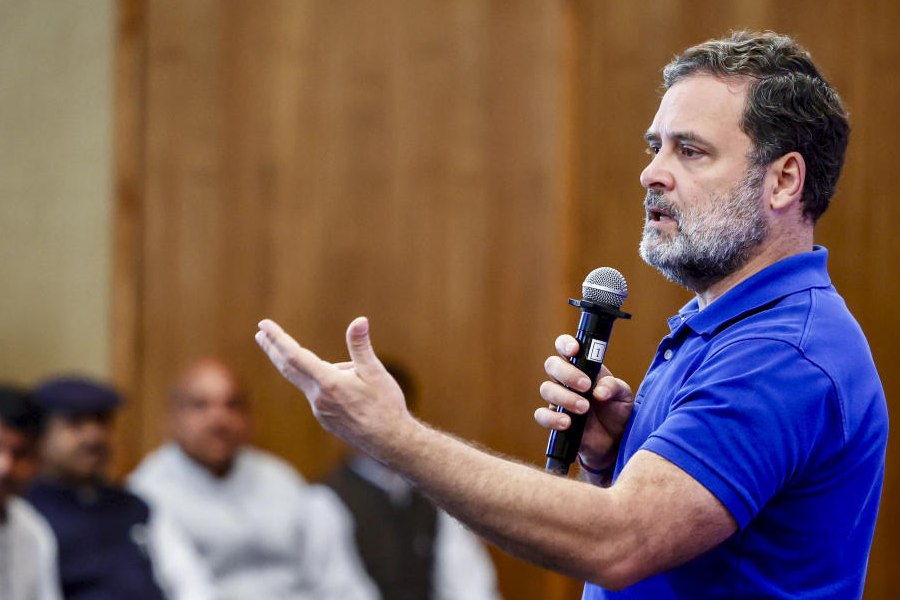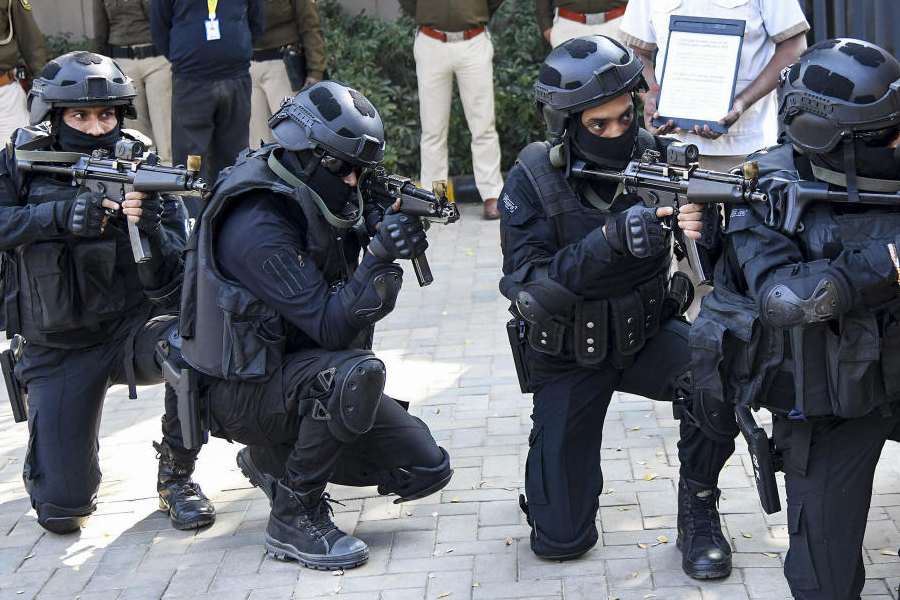|
|
In the second week of November, when President Barack Obama flew eastwards out of New Delhi towards Indonesia, I myself left my home town, Bangalore, for Obama’s home country. Like very many other Indians I had been deeply impressed by the visitor, by the grace and dignity with which he conducted himself, and by the quality of his mind and his oratory. Travelling through the United States of America, however, I found my friends and hosts to be sceptical and critical of their president. Those who were conservative in temperament complained that he had socialistic tendencies, seeking to strengthen the control of the State over the economy and the everyday lives of citizens. The Left, whom one might have thought to be his natural constituency, were even harsher in their criticisms. They were angry that the president had done nothing to rein in or punish the marauders of Wall Street, and that he was not considering higher taxes for the rich.
Rightwing and leftwing Americans attacked Obama from different perspectives on the ideological spectrum. At the same time, they were united in their reservations with regard to the president’s personality, which they found to be reserved, cold, aloof, in a word, stand-offish. Despite his extraordinary intelligence and speaking skills, it appeared that he could not communicate, in an emotional and human sense, with the American people. Hence, the major election reverses that his Democratic Party had suffered just prior to Obama’s trip to India.
Some years ago, while on a visit to Washington, Prime Minister Manmohan Singh told the serving president of the US that “the people of India love you”. That was a colossal overstatement. The business elite of Mumbai warmed to George W. Bush because of his attempts to bring down the protectionist barriers erected by his predecessors. Military strategists and foreign-policy wonks in New Delhi warmed to the junior Bush for his apparent endorsement of an alliance between India and the US, an alliance designed to contain and tame the ambitions of their common rival, China. However, those Indians with no stake in the global economy or no dog in the fight with China were either indifferent to Bush, or actually disliked him for launching an unprovoked and clearly illegal war in Iraq.
On the other hand, from the time Obama launched his presidential campaign, he had the people of India on his side. Unlike George W. Bush or his own rival for the Democratic nomination, Hillary Clinton, the senator from Illinois had no family connections in politics. He had come, literally, from nowhere, rising in prominence and visibility purely on account of his intelligence and hard work. Like other people in Asia and Africa, Indians took to Obama because of his racial background, the challenge he represented to the white domination of American politics. His superb speaking skills were an added attraction, as indeed, was his commitment to family values, manifest in his attachment to the elderly grandmother in Hawaii who had helped raise him. If Indians had a vote in the 2008 US presidential elections, all except for members of the Confederation of Indian Industry and retired four-star generals would have preferred Obama to John McCain.
Millions of Indians ‘loved’ Obama in 2008, and many continue to do so now. His recent trip to our country was, in terms of its popular reception, a resounding success. There were worries before he came that he would foreground the ‘B’ word, by complaining about American jobs being taken away by firms in Bangalore, as well as the ‘K’ word, by suggesting that America could play a role in resolving the Kashmir dispute. In the event, he did not mention outsourcing on his own (and neatly deflected a question on the subject at a press conference), while making it clear that his country would not interfere in bilateral negotiations between India and Pakistan. He was impressive at a meeting with college students in Mumbai, and even more impressive in his address to the Indian parliament, with its range of historical reference and its generous admission that had it not been for Mahatma Gandhi he would not now be in the White House himself.
However, as I discovered on my travels, despite the high regard in which we continue to hold him, in his own country Obama’s popularity and appeal are on the decline. The reverses in the recent Congressional elections were a clear indication of this, as are the grumblings about his policies that one reads about in the American press and hears about from one’s American friends. He may yet recover some of the lost ground, and may yet be re-elected to a second term, since there is no credible Republican candidate on the horizon. Still, one cannot be struck by the contrast between Barack Obama’s high standing in my country and his middling reputation in his own country.
Thinking further on the subject, it seems to me that in this respect Obama’s situation is not unlike Manmohan Singh’s. In his second term as prime minister of India, Singh has enjoyed less than a smooth ride. Earlier this year, he came under criticism for not being able to contain dissension within his cabinet, with rival ministers openly expressing disagreement on how to deal with the environment, with Naxalites, and with Kashmir. More recently, he has been condemned for his failure to act promptly against tainted ministers. During his first term, Singh generally enjoyed a favourable press, and also enormous respect among the middle class, which doubtless contributed to the Congress’s electoral gains in the elections of 2009. Now, a mere 18 months later, the press has turned against him, while the middle class is no longer willing to excuse his tolerance, and even indulgence, of corrupt colleagues on the grounds that he is scrupulously clean himself.
At the same time, Singh continues to be widely admired in the West, where influential newspapers praise him for his personal honesty and his intellectual capabilities. To them, he is both a good man among thieves and a thinker among ignoramuses, prized on both counts, held up as a model for other nations in Asia and Africa, whose leaders often have their own hands in the till while lacking any understanding of their country’s history or its emerging place in the international system. Common folk in the West do not generally pay much attention to Indian politics or Indian politicians, but leaders and opinion-makers in Europe and North America do, as it were, ‘love’ Manmohan Singh.
There is thus a curious symmetry in the reputations of the president of the US and the prime minister of India. Both are admired abroad, and both are less-than-admired at home. This contrast may explain the mutual affection so visibly on display in New Delhi in the second week of November. For, while Barack Obama and Manmohan Singh may be losing the battle for the hearts and minds of their own, domestic, constituencies, they can yet take consolation in their appeal in each other’s countries.











